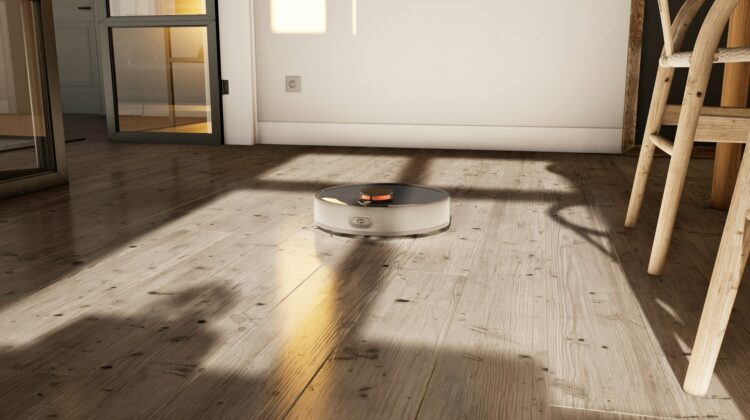
Hardwood Floor Installation Cost Guide
When considering a home renovation, installing hardwood flooring is a popular choice among homeowners in Anchorage, AK. This timeless option offers a combination of aesthetic appeal and durability. However, understanding the cost involved in hardwood floor installation is crucial to making informed decisions. This guide will provide you with insights into the factors that affect pricing and what you can expect to pay when transforming your home with beautiful hardwood floors.
Understanding the Cost of Hardwood Flooring
The cost of installing hardwood floors varies based on several factors, including the type of hardwood flooring you choose, the square footage of your space, and the labor involved in the installation process. On average, homeowners can expect to pay around $12 per square foot for labor and materials combined, but this can vary widely.
Factors Affecting Hardwood Flooring Costs
- Type of Hardwood Flooring: The type of hardwood flooring you select plays a significant role in determining the overall cost. Engineered hardwood is often more affordable than solid hardwood, and it can provide excellent stability and resistance to water damage. On the other hand, solid hardwood floors made from popular wood species like red oak or maple can be pricier due to their durability and aesthetic appeal. If you choose exotic woods, such as Brazilian cherry or teak, be prepared for a higher price tag due to their rarity and the cost of sourcing these materials.
- Wood Species: Different wood species come with varying price points. Commonly used species like oak and maple are generally more budget-friendly compared to rarer options like walnut or cherry. When selecting your wood, consider not only the upfront cost but also the long-term value. Investing in high-quality wood species can save money in the long run, as they tend to withstand wear and tear better over time.
- Square Footage: The total cost of your hardwood installation will largely depend on the square footage of the area you wish to cover. Larger spaces will naturally incur higher costs, both for materials and labor. It’s important to measure your space accurately to determine how much flooring material you will need. Most hardwood flooring stores can provide guidance on how to calculate your required square footage and how to estimate your overall installation costs.
- Labor Costs: Labor costs for hardwood installation can vary significantly based on your location and the complexity of the job. On average, homeowners can expect to pay around $4 to $6 per square foot for labor. This price may increase if additional preparation work is needed, such as removing old flooring or repairing subfloor damage. It’s essential to choose a reputable contractor who will ensure the installation is done correctly, as improper installation can lead to costly repairs down the line.
Additional Costs to Consider
While the initial price of hardwood flooring installation is essential, there are other costs to keep in mind:
- Underlayment: Depending on the type of wood and the subfloor conditions, you may need to invest in underlayment materials, which can add to the total cost.
- Finishing: If you choose solid hardwood, you might need to factor in the costs associated with sanding and finishing your floors post-installation. This can add another $1 to $3 per square foot.
- Water Damage Prevention: In Anchorage, where moisture can be a concern, investing in quality sealants or moisture barriers may be necessary to protect your flooring from water damage. This upfront cost can help save money in the long run by preventing costly repairs.
- Maintenance: Ongoing maintenance, including refinishing and cleaning, is also an important consideration. Regular care can help maintain the beauty and durability of your hardwood floors, extending their lifespan and minimizing the need for replacement.
Saving Money on Hardwood Flooring Installation
If you’re looking to save money while installing new flooring, consider these tips:
- Shop Around: Visit various hardwood flooring stores in your area to compare prices on materials and labor. This can help you find the best deals.
- Choose Engineered Hardwood: If you’re on a budget, engineered hardwood offers a more affordable alternative to solid hardwood, while still providing the look and feel of natural wood.
- DIY Installation: If you have experience with home improvement projects, consider taking on the installation yourself. This can significantly reduce labor costs. However, be sure to research and understand the installation process thoroughly to avoid mistakes.
- Consider Off-Season Discounts: Many flooring retailers offer discounts during off-peak seasons. If you can wait, shopping for hardwood flooring during these times may lead to considerable savings.
What to Expect When Installing Hardwood Flooring
The process of installing hardwood flooring involves several steps. First, you’ll need to choose your desired wood type and gather measurements for your space. Once you’ve selected the materials, the contractor will prepare your subfloor, ensuring it is clean and level. This step is crucial for the longevity of your hardwood floors.
Next, the installation process begins, where the hardwood planks are laid out according to your chosen pattern. If you’re installing engineered hardwood, this may involve clicking or gluing the planks together, whereas solid hardwood may require nailing down. After the installation, if needed, your floors will be sanded and finished to achieve the desired sheen.
Final Thoughts
Installing hardwood flooring is an investment that enhances the beauty and value of your home. By understanding the various costs associated with hardwood installation, you can make informed decisions that align with your budget and aesthetic preferences. Whether you opt for traditional solid hardwood or modern engineered options, the right choice will leave you with stunning floors that will last for years to come.





